
Planetscale is a serverless database platform that provides a fully managed and scalable MySQL-compatible database solution.

On 6 March 2024, the Planetscale team announced their decision to remove their Hobby plan — a free tier developers used to manage and deploy their serverless databases. According to Sam Lambert, the CEO of Planetscale, they made this decision to “prioritize profitability and build a company that can last forever.”
The Hobby plan is no longer available on the pricing page, and Planetscale will deprecate it on 8 April 2024. Users who haven’t migrated their Hobby databases by then will need a paid plan to access their data.
The decision to remove the Hobby plan was sudden, and with the Planetscale free plan gone, many developers are searching for alternative solutions that offer generous free tiers.
In this article, we will explore 11 Planetscale alternatives that offer free plans for performing backend and database operations. We will also explore key factors to consider when choosing a serverless database platform. Let’s dive in!
The Replay is a weekly newsletter for dev and engineering leaders.
Delivered once a week, it's your curated guide to the most important conversations around frontend dev, emerging AI tools, and the state of modern software.
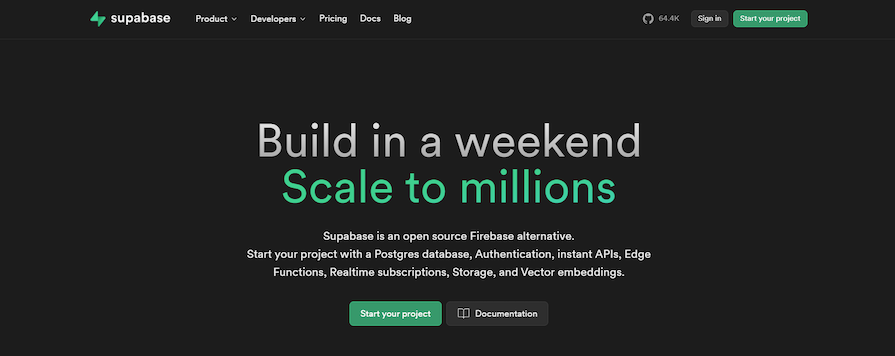
Supabase positions itself as the “open source Firebase alternative.” It was founded in 2020 and is a developer-friendly serverless database platform that supports over 20 frameworks, including popular tools like Next.js, React, Nuxt, Svelte, Flutter, and Vue.
Supabase provides integrations with third-party tools like Cloudflare Workers, Vercel, Resend, and Auth0. These integrations cover categories including API, auth, caching, data platforms, DevTools, foreign data wrappers, no-code tools, and messaging.
Supabase’s free tier offers the following:
Features:
Benefits:
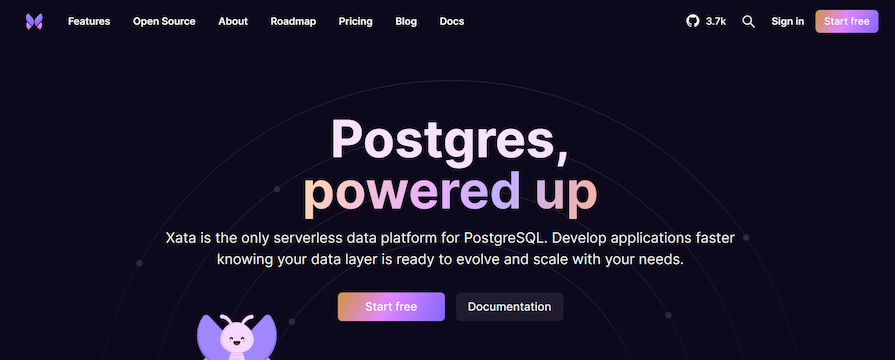
Like Supabase, Xata is a serverless database platform that was founded in 2020 and supports Postgres. It combines the powers of PostgreSQL and ElasticSearch for database operations.
Xata supports several modern JavaScript frameworks, including Astro, SolidJS, SvelteKit, Nuxt, Remix, and Next.js.
Xata’s free tier offers the following:
Features:
Benefits:
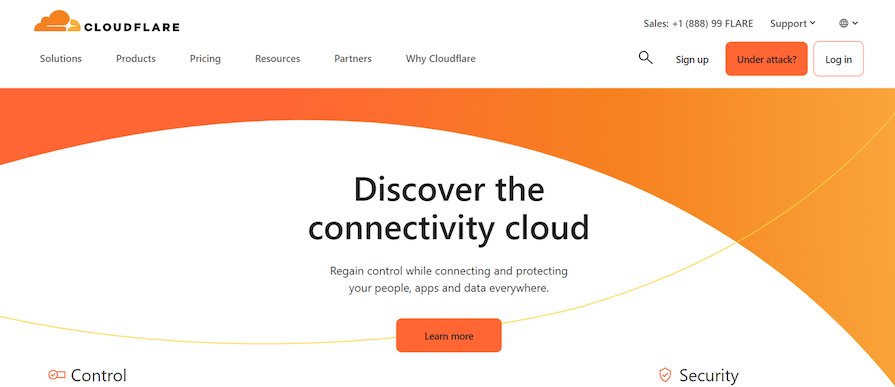
Unlike other providers in this list, Cloudflare is not just a serverless database platform. Instead, it’s a cloud connectivity platform that provides several web services. It’s one of the world’s largest networks and serves 55 million HTTP requests per second.
Cloudflare provides several popular solutions, like Cloudflare Pages for deploying frontend applications and Cloudflare CDN for content delivery.
When it comes to serverless databases, Cloudflare offers various solutions, which each offer free tiers:
Features:
Benefits:
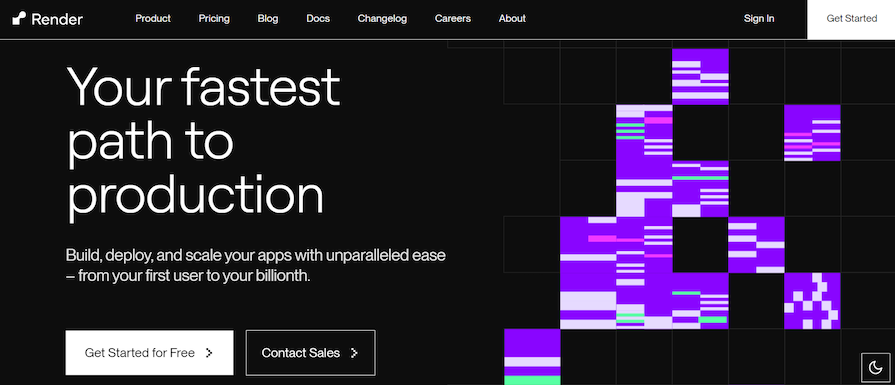
Render is a cloud-based application hosting and database platform for building, deploying, and scaling applications with ease. It provides enterprise-grade data stores, automatic scaling, backups, and high availability, and it supports PostgreSQL databases.
Render’s free tier offers the following:
Features:
Benefits:
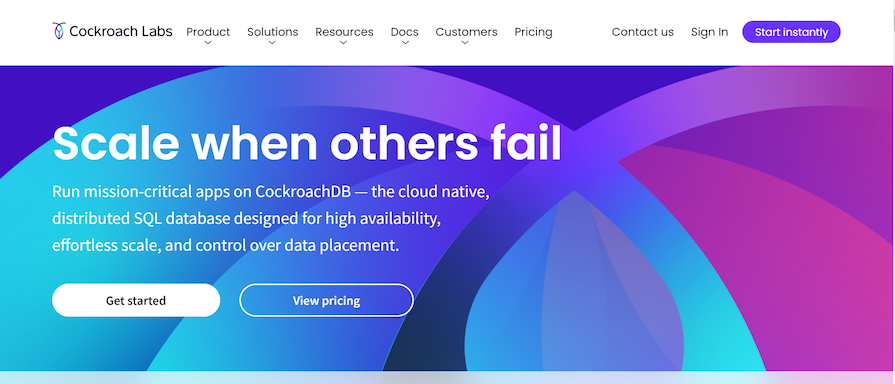
CockroachDB is an open source distributed SQL database designed for scalability and resilience. While it offers SQL databases, CockroachDB is also compatible with PostgreSQL.
CockroachDB was built with Go, supports multi-cloud deployment, and can handle millions of queries per second. It offers automatic scaling, data replication, ACID compliance, an elastic and robust data architecture, and global distribution.
CockroachDB’s free tier offers the following:
Features:
Benefits:
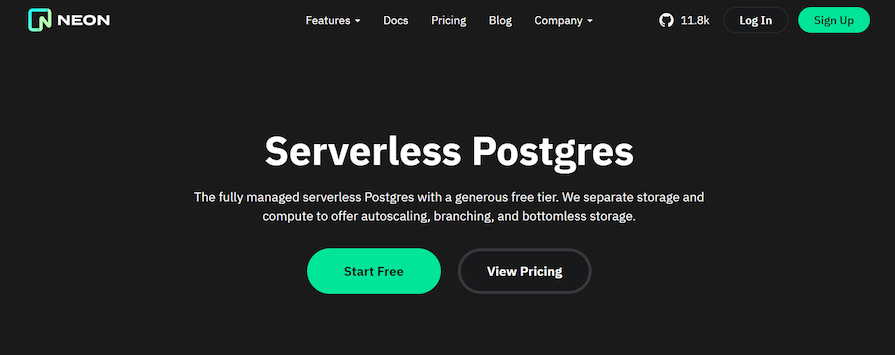
Neon is an open source and cloud-native serverless database platform that focuses on simplicity and ease of use. It supports Postgres databases and offers built-in features like bottomless storage, autoscaling, and branching.
Neon’s free tier offers the following:
Features:
Benefits:
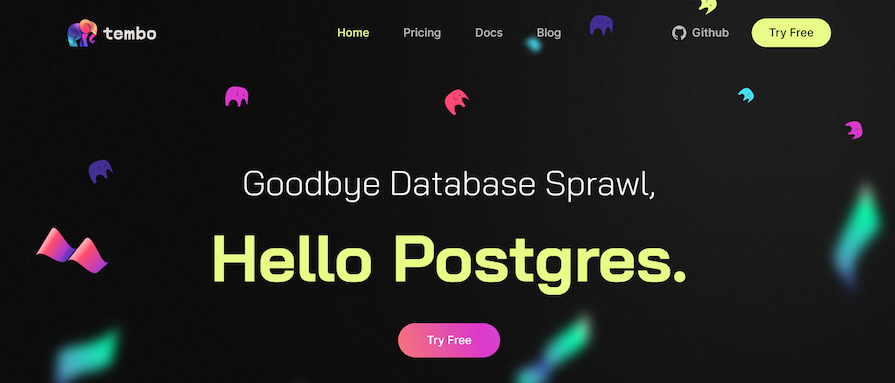
Tembo is an open source serverless database platform for Postgres databases. It was launched in January 2023 and provides a singular Postgres-centric platform for running Postgres and its entire ecosystem, including extensions, applications, tools, and more.
Tembo’s free tier offers the following:
Features:
Benefits:
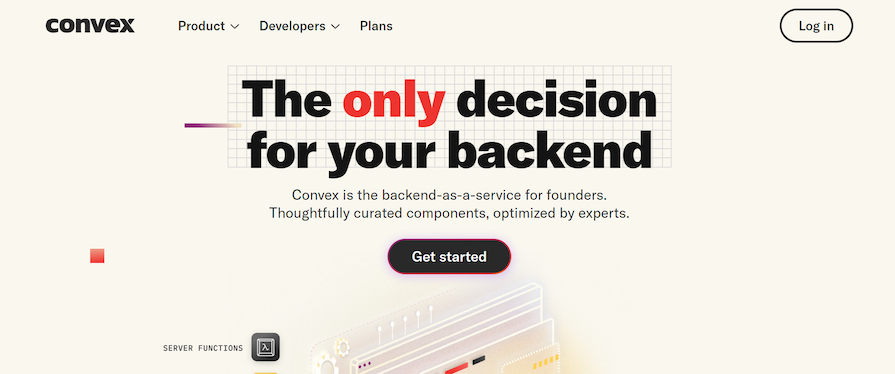
Convex is a serverless backend-as-a-service (BaaS) that is similar to Firebase and Supabase. It is specifically tailored for founders and startups.
Besides database solutions, Convex also provides capabilities like server functions, backend functionality, and authentication. It’s a frontend-development-friendly platform and supports frameworks like Next.js and React, among others.
Convex’s free tier offers the following:
Features:
Benefits:
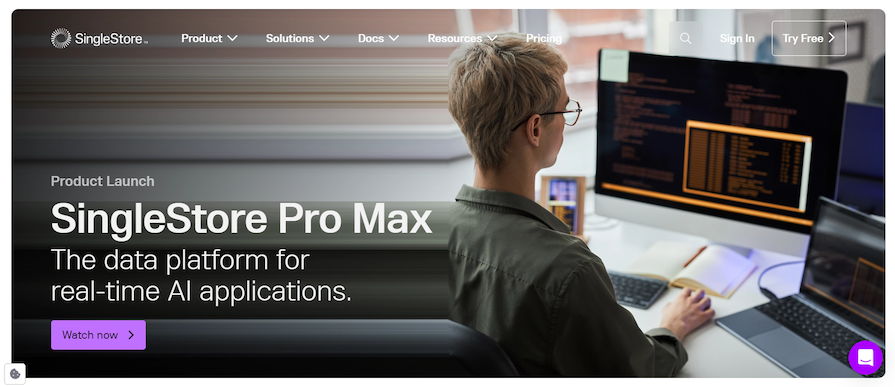
SingleStore is a distributed SQL database that offers high-throughput transactions (inserts and upserts), high performance, and real-time analytics. It provides high performance even when working with large-scale transactional workloads.
SingleStore follows the multi-model database approach, which allows you to store and access data of different types, including:
While SingleStore has a free tier, it does not provide data on what the free tier contains. However, the pricing page shows that SingleStore offers $600 worth of free credits.
Features:
Benefits:
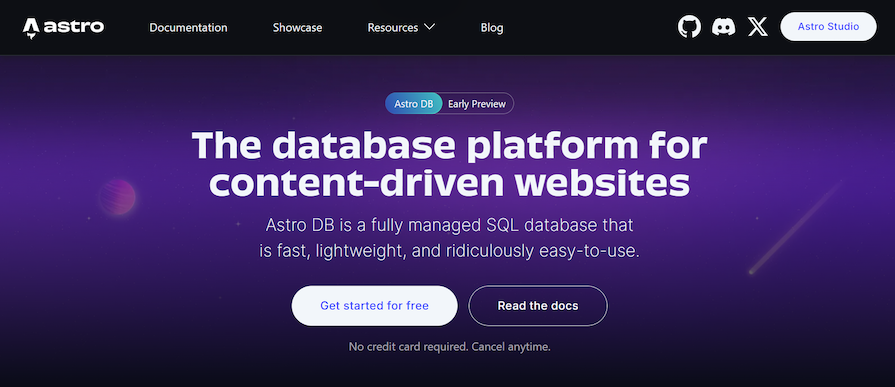
Astro DB is a fast, lightweight, and fully managed SQL database. It’s the database service of Astro, a framework for building content-driven websites — like blogs, marketing, and ecommerce — with your preferred JavaScript framework. Astro DB was released on 12 March 2024.
Astro DB is powered by LibSQL, an open source fork of SQLite that was created by Turso. You can use Astro DB’s drop-in database to build features like blogs, comment functionality, forums, feedback systems, and user authentication.
An important thing to note is that Astro DB is built for the Astro ecosystem, meaning that, for now, it only works with websites built with Astro.
Astro DB’s free tier offers the following:
Features:
Benefits:
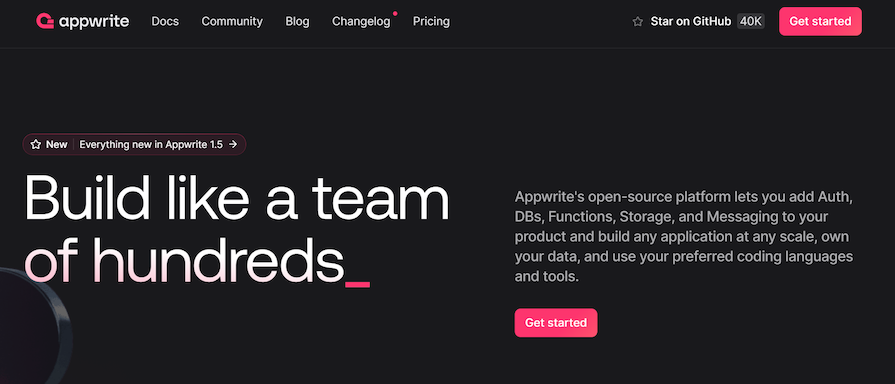
Appwrite is an open source BaaS platform that provides services like serverless functions, serverless databases, user authentication, and messaging. Since its release, it has quickly become a popular choice for building websites and applications.
Appwrite’s serverless database service is a scalable, high-performance solution that lets you store, query, and manage structured data. It supports SQL and NoSQL database adapters like MariaDB and MySQL.
Appwrite integrates with several technologies, including Flutter, Next.js, Vue.js, SvelteKit, Nuxt, Angular, Qwik, and Astro. It also provides iOS and Android SKDS for mobile app development.
Appwrite’s free tier offers the following:
Features:
Benefits:
While serverless databases are primarily considered backend data storage solutions, they can also offer interesting capabilities for frontend developers. Let’s explore a few different ways frontend developers can use them to build scalable and efficient applications.
Many serverless platforms like Supabase, Convex, and Appwrite provide real-time functionality and allow you to subscribe directly to data changes and receive live updates. This enables powerful real-time features like collaborative editing, multiplayer games, chat applications, and live dashboards and monitoring.
With serverless database platforms, applications can read and write data while offline. The client synchronizes those changes when online since the serverless solution automatically syncs the cache. This offline data persistence is crucial for mobile apps, progressive web apps, or any application that needs to function with unreliable network connectivity.
While not a core feature of serverless database platforms, some solutions provide user authentication functionalities. They allow you to pick your preferred authentication workflow, whether email/password, Google, Facebook, GitHub, etc. This removes the need to create complex authentication flows from scratch.
Solutions like Supabase and Appwrite provide built-in authentication functionality, while Xata allows you to integrate with third-party authentication tools.
The low setup overhead of serverless databases makes them ideal for rapidly prototyping new ideas or MVPs (minimum viable products). You can spin up a real-time database in minutes, allowing you to quickly validate concepts and build prototypes.
Let’s explore some key factors to consider when choosing between a serverless database platform:
To that end, let’s see how the Planetscale alternatives we’ve discussed compare when it comes to these factors:
| Platform | Pricing beyond free tier | Security | Features | Data model support |
|---|---|---|---|---|
| Supabase | Starts at $25/month | Adheres to global security standards | Authentication, edge functions, real-time subscriptions, storage, vector embeddings, auto-generates APIs, CLI, SQL editor, table editor | Postgres |
| Xata | Starts at $20/month | Adheres to global security standards | JSON-like schema definition, database branching, relational data model, real-time data processing, code snippet generation, file storage, ChatGPT functionality | Postgres |
| Cloudflare | Starts at $5/month | Adheres to global security standards | Native serverless architecture, SQL based dialect, JSON parsing, support for full-text search and triggers | SQL |
| Render | Starts at $19/user/month | Adheres to global security standards | Automatic deploys, supports native runtimes for several languages, automatic scaling | PostgreSQL |
| CockroachDB | Starts at $295/month | Adheres to global security standards | Horizontal scaling for reads and writes, query inspection tools, interactive SQL playground | SQL |
| Neon | Starts at $19/month | Adheres to global security standards | Autoscaling, database branching, auto-backups, CLI, AI vector store, multi-tenant storage | Postgres |
| Tembo | Starts at $35/month | Adheres to global security standards | Point in time recovery, CLI, auto-generated API endpoints, vector search, real-time notifications | Postgres |
| Convex | Starts at $25/user/month | Adheres to global security standards | Server functions, ACID database. vector search, Full-text search, CLI, cron jobs, file storage, automatic caching | Real-time |
| SingleStore | Starts at $0.80/hr | Adheres to global security standards | Real-time analytics, vector similarity search, buttomless storage, ACID-compliant transactions, supports several data types, | Distributed SQL |
| Astro DB | Free, then pay as you go | Data unavailable | Spreadsheet UI, rich-text editor, SQL console, Drizzle ORM client, TypeScript ORM | SQL |
| Appwrite | Starts at $15/user/month | Adheres to global security standards | Serverless functions, file uploads and storage, real-time events, messaging, and authentication | SQL and NoSQL |
Note that all of these tools offer scalability features, and their ease of use may depend on many factors, so these have been excluded from the table above.
There are multiple serverless database platforms to choose from, and picking the right solution can be tricky. This article will serve as a guide and help you streamline the decision-making process.
You can safely use the free tiers of any of the 11 Planetscale alternatives covered in this article to build your next project, whether an ecommerce app, chatbot, inventory system, or the next unicorn SaaS app. And if the serverless database platform you choose happens to end its free plan like Planetscale did, you have 10 other options to explore.

Signal Forms in Angular 21 replace FormGroup pain and ControlValueAccessor complexity with a cleaner, reactive model built on signals.

Discover what’s new in The Replay, LogRocket’s newsletter for dev and engineering leaders, in the February 25th issue.

Explore how the Universal Commerce Protocol (UCP) allows AI agents to connect with merchants, handle checkout sessions, and securely process payments in real-world e-commerce flows.

React Server Components and the Next.js App Router enable streaming and smaller client bundles, but only when used correctly. This article explores six common mistakes that block streaming, bloat hydration, and create stale UI in production.
Would you be interested in joining LogRocket's developer community?
Join LogRocket’s Content Advisory Board. You’ll help inform the type of content we create and get access to exclusive meetups, social accreditation, and swag.
Sign up now